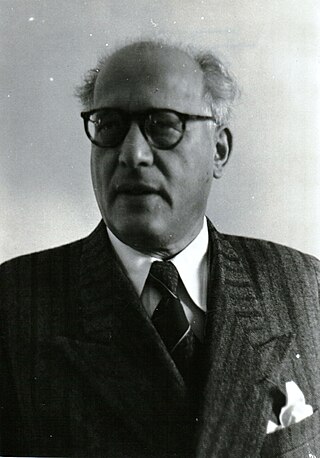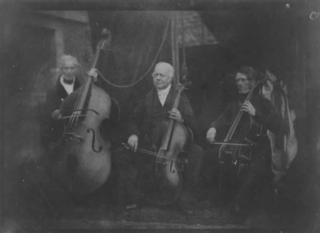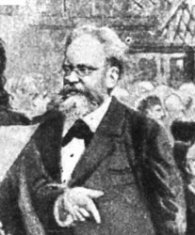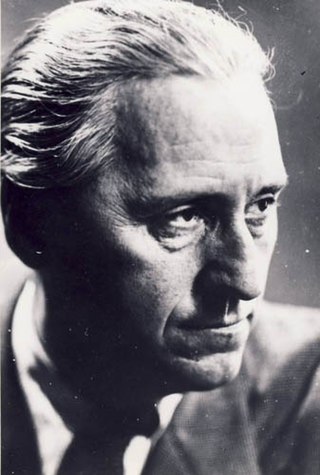Related Research Articles

Ignacy Jan Paderewski was a Polish pianist, composer and statesman who was a spokesman for Polish independence. In 1919, he was the nation's prime minister and foreign minister during which he signed the Treaty of Versailles, which ended World War I.

Alexander Tansman was a Polish composer, pianist and conductor who became a naturalized French citizen in 1938. One of the earliest representatives of neoclassicism, associated with École de Paris, Tansman was a globally recognized and celebrated composer.

Charles Martin Tornov Loeffler was a German-born American violinist and composer.

Grzegorz Fitelberg was a Polish conductor, violinist and composer. He was a member of the Young Poland group, together with artists such as Karol Szymanowski, Ludomir Różycki and Mieczysław Karłowicz.
George Frederick McKay was a prolific modern American composer.

Charles Lucas was an English composer, cellist, conductor, publisher and from 1859 to 1866 third principal of the Royal Academy of Music.
Arthur Shepherd was an American composer and conductor in the 20th century.

Mark Hambourg was a Russian British concert pianist.

Tymoteusz "Timothee" Adamowski was a Polish-born American conductor, composer, and violinist. Born in Warsaw, he studied in that city's conservatory, later moving on to further studies in Paris. He served as the first conductor of the Boston Pops Orchestra. Adamowski was the uncle of Polish Olympic hockey player Tadeusz Adamowski and the humanitarian Helenka Adamowska Pantaleoni.

Tadeusz "Ralf" Adamowski was a Polish-American ice hockey player who competed in the 1928 Winter Olympics, and a supporter and popularizer of the sport in early twentieth century Poland.
Polonia is a symphonic prelude by the English composer Edward Elgar written in 1915 as his Op. 76.
William Edwin Haesche was an American composer.

George Frederick Boyle was an Australian, and later American pianist, composer and pedagogue. He moved to the United States in 1910 and remained there until his death in 1948.

Helen Tradusa "Helenka" Adamowska Pantaleoni was an American silent film actress and humanitarian. She was the founding director of the U.S. Committee for UNICEF, a role that she held for 25 years. Her granddaughter is American actress Téa Leoni.

Ethel Liggins was a British pianist, conductor and composer. A student of Theodor Leschetizky, she became widely known as the ‘Paderewski of woman pianists’ and established herself as one of the first female conductors.

Tadeusz Szeligowski was a Polish composer, educator, lawyer and music organizer. His works include the operas The Rise of the Scholars, Krakatuk and Theodor Gentlemen, the ballets The Peacock and the Girl and Mazepa ballets, two violin concertos, chamber and choral works.

Heinrich Urban was a German violinist and composer.
Allan Arthur Willman(variant spellingsAlan & Wilman; néAllan Arthur Simpkins; 11 May 1909 Hinckley, Illinois 7 May 1989 Cheyenne, Wyoming) was an American classical pianist, composer, music pedagog at the collegiate level, and longtime chairman of the Department of Music at the University of Wyoming. Willman was a vanguard creator and influential exponent of twentieth-century contemporary music. As chairman of the music department at the University of Wyoming, he is credited with rapidly expanding music arts within the institution. He led the development of a more comprehensive Music Department for aspiring academicians and professionals in performance, composition, education, and musicology. Between 1940 and 1950, enrollment in the Music Department quadrupled. Willman was founder of the Wyoming Music Teachers Association; and—with Wyoming businessman and composer George William Hufsmith, Jr. (1924–2002), and Casper conductor Ernest Gilbert Hagen (1913–2000)—Willman was co-founder of the Grand Teton Music Festival in 1962.

Antoinette Szumowska, originally Antonina Szumowska, later Antoinette Szumowska-Adamowska, was a Polish pianist and piano teacher.

Theodor Rogalski was a Romanian composer, conductor and pianist of Polish origin. He played an important role in the development of Romanian musical culture in the first half of the twentieth century.
References
- ↑ "Music And Musicians: Judges in the Paderewski Prize Competition Announce Their Reward", St. Albans Daily Messenger (Vermont), November 1, 1901, pg. 5
- ↑ "W. C. Riegger Wins Paderewski Prize", Times-Picayune , August 6, 1922
- ↑ Thursday, "Paderewski Prize Awards, Boston Herald , October 31, 1901, pg. 12
- ↑ "The Paderewski Prize", New-York Tribune , December 3, 1905, Page 7
- ↑ "Mars ascending", by Charles Haubiel (manuscript) (1923); OCLC 52187186
- ↑ The Boston Composers Project: A Bibliography of Contemporary Music, Linda Solow Blotner (born 1947) (ed.), Boston Area Music Libraries, MIT Press (1983); OCLC 9576366
- ↑ Death Notice: "Friedrich R. Pfau", Die Musik 1905–1906, Vol. 17, No. 3, 1st quarter, pg. 199; OCLC 1696908
- ↑ "Sigismond Stojowski and His Views on Piano Study", by William Armstrong, Polish Music Journal, Winter 2002; ISSN 1521-6039